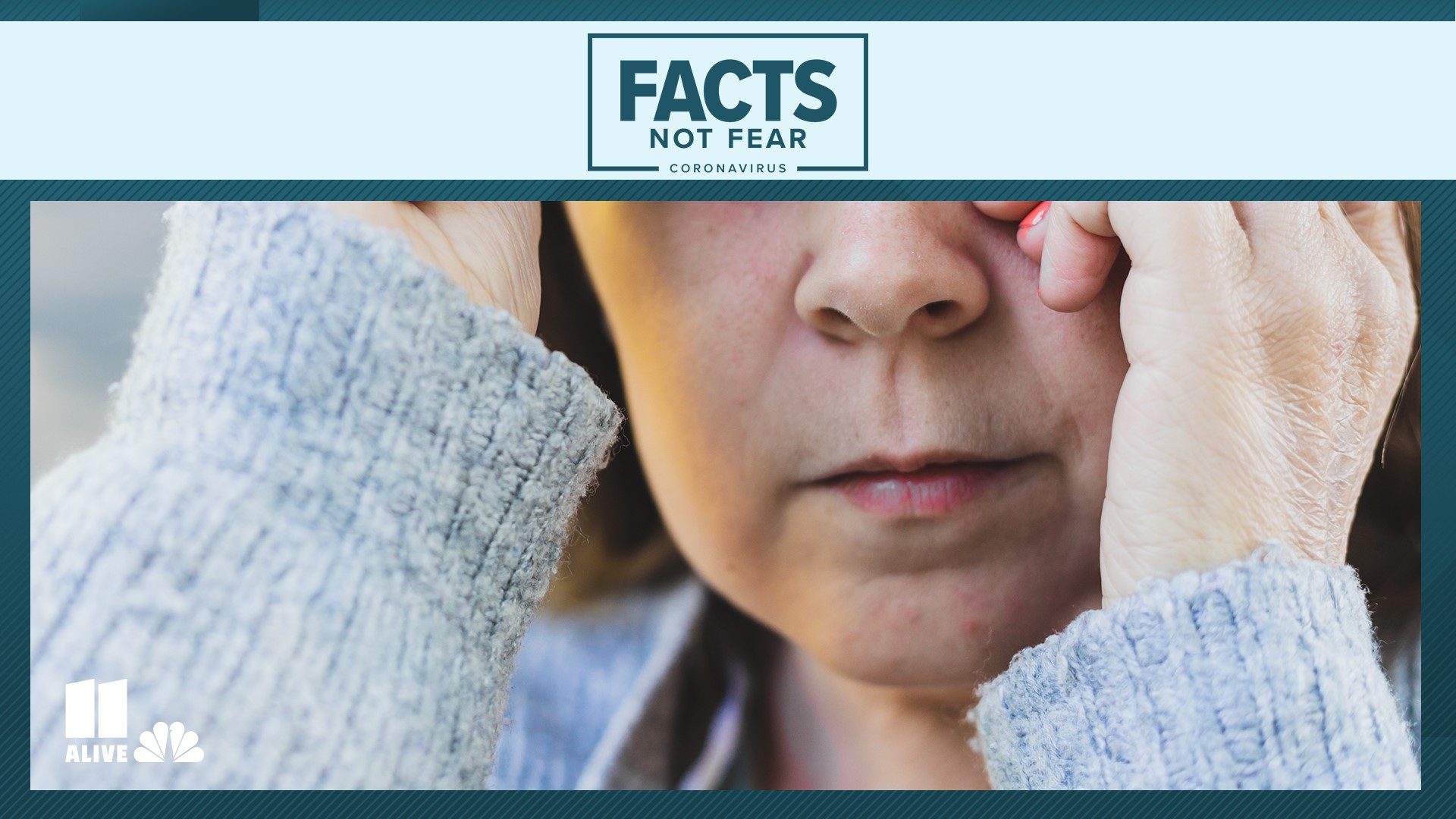ATLANTA — There are several tips health experts say are best practices for coronavirus prevention, such as thoroughly washing your hands, covering your coughs and sneezes, and not touching your face.
The last tip - not touching your face - may be the hardest. 11Alive's Rebecca Lindstrom decided to put some of her co-workers to the test by putting cameras on them.
"I definitely was aware there was a camera filming me and I tried hard not to touch my face, but it's just so difficult," Andre said, one of our producers.
Andre touched his face 19 times - all the while another co-worker feverishly cleaned her workspace behind him.
Most people we watched made contact about nine times.
Dr. Sujatha Reddy said there are parts of your face that carry more risk.
"You happen to put your hand near your mouth or your lips and those secretions enter your body," she said.
Your eyes are another one.
While it's believed coronavirus can live on a surface for several hours, the Centers for Disease Control and Prevention (CDC) said it's not aware yet of any surface to person transmissions.
Still, Reddy said there's no reason not to start learning good habits, especially with a virus that doesn't always come with those obvious clues.
"That's part of the problem with this virus. We know the virus has been transmitted when a person didn't have symptoms, we're calling that asymptomatic transmission," she explained.
The Georgia Department of Public Health has listed some best practices to follow:
- Wash your hands often with soap and warm water for at least 20 seconds. If soap and water are not available, use an alcohol-based hand sanitizer.
- Avoid touching your eyes, nose, and mouth with unwashed hands.
- Avoid close contact with people who are sick.
- Stay home when you are sick.
- Cover your cough or sneeze with a tissue, then throw the tissue in the trash.
- Clean and disinfect frequently touched objects and surfaces.
OTHER HEADLINES

